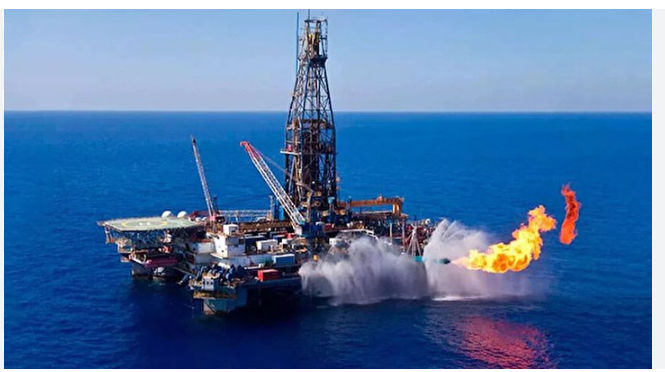The battle for Turkey’s future is in full swing. Launching his election campaign in Ankara last week, President Recep Tayyip Erdogan lashed out at the “global imperialist” West and spoke of making the country stronger. It was classic Erdogan, stirring up his base with defiant rhetoric — and the help of a pliant media. The Sakarya gas field he inaugurated this week, the largest upstream project in Turkey’s history, will eventually help cut the country’s mammoth energy bill. But many Turks have wearied of the hype, with rampant inflation, creeping authoritarianism and fallout from February’s devastating earthquake among the reasons why Erdogan’s position is now under threat, explains Energy Intelligence.
Pre-Election Gas Boon
First gas from the ultra-deepwater Sakarya field, discovered just three years ago, is a landmark achievement for Turkey, even if pre-election politics appear to be driving official pronouncements around the development and ahead of Thursday’s start-up ceremony. A source with operator state Turkish Petroleum (TPOA) says 3 million cubic meters per day will initially be produced from three wells, with gas reaching the grid in early May as more wells come on and output rises. Phase 1 plateau production of 10 MMcm/d could be reached by September, with 10 wells due on stream.
But rather than supplying 15% of Turkey’s gas needs, as TPAO boss Melih Han Bilgin claimed, and slashing the country’s energy bill — which topped $95 billion last year — Phase 1 will only supply 6% of annual consumption, a Turkish industry source says. If volumes rise to 40 MMcm/d as planned in Phase 2, the field would meet around one-quarter of domestic demand, which “will definitely help Turkey to reduce the gas bill and [strengthen] security of supply,” he adds. But the TPOA source says that will likely take another five years, more than double Bilgin’s estimate, and there are questions around the cost of the project. The gas-processing plant is being built by Turkish conglomerate Renaissance, which constructed the controversial presidential palace in Ankara and whose owner Erman Ilicak has close ties to Erdogan.
Strategic Setbacks
Turkey boasts a wealth of energy infrastructure, and Ankara has lined up behind Moscow’s push for Turkey to become a regional gas hub, something that clearly suits Erdogan’s geopolitical ambitions. But besides the political and legal obstacles in the way of the plan — from the toxicity of Russian gas in Europe to Turkey’s illiberalized market — it was shaken by the Feb. 6 earthquake, which delayed a gas hub summit indefinitely. Sources say the gas hub plans could be revived if Erdogan is re-elected, and Turkey’s pipeline infrastructure went largely unscathed. But a final investment decision is still needed on doubling the capacity of the Trans-Anatolian Natural Gas Pipeline that could bring more Azeri gas via Turkey to Europe. Turkey’s financial resources were already stretched before the earthquake. The World Bank estimates that it caused nearly $35 billion in damage, or 4% of Turkey’s GDP.
The recent arbitration ruling by the International Chamber of Commerce against Turkey — for allowing Kurdish oil exports without the Iraqi government’s authorization — is also a mark against Turkey as a transit hub. The final award requires Turkey to pay $1.47 billion. In a sign that this has not gone down well in Ankara, Baghdad on Apr. 10 petitioned a US federal court to enforce the award.
A Weakened Strongman
The National Alliance opposition bloc of six parties seeking to unseat Erdogan united last month behind a single candidate, Kemal Kilicdaroglu, boosting its chances in a political landscape transformed by the earthquake whose death toll now tops 50,000 and the poor state of Turkey’s economy. Inflation has eased from its 85% peak in October, but remains far above all other OECD countries. “The massive damage caused by the earthquake in February laid bare the institutional decay and corruption in a system that Erdogan had promised would bring stability and prosperity,” Turkish academics Kemal Kirisci and Berk Esen wrote in a blog this week.
Kilicdaroglu, a Kurd belonging to Turkey’s minority Alevi Muslim group, heads the main opposition Republican People’s Party (CHP) and is seen as uncharismatic but principled. In recent weeks, polling has put him just ahead of Erdogan. Further enhancing his prospects, the opposition alliance has appointed the popular mayors of Istanbul and Ankara as vice presidential candidates. It has vowed to end one-man rule, restore parliamentary democracy and curb inflation. On foreign policy, the alliance seems to have agreed on renewing EU membership goals and committing to a Western orientation while not alienating Russia, says Yaprak Gursoy, with UK think tank Chatham House. Whether that would entail curbing Turkey’s appetite for cheap Russian oil is unclear.
Excerpt only
Follow our English language YouTube videos @ REAL TURKEY: https://www.youtube.com/channel/UCKpFJB4GFiNkhmpVZQ_d9Rg
And content at Twitter: @AtillaEng
Facebook: Real Turkey Channel: https://www.facebook.com/realturkeychannel/
